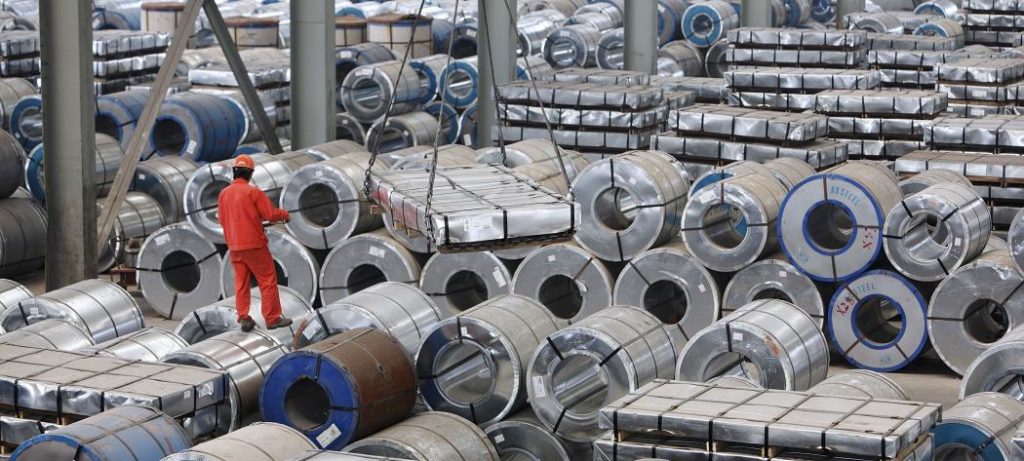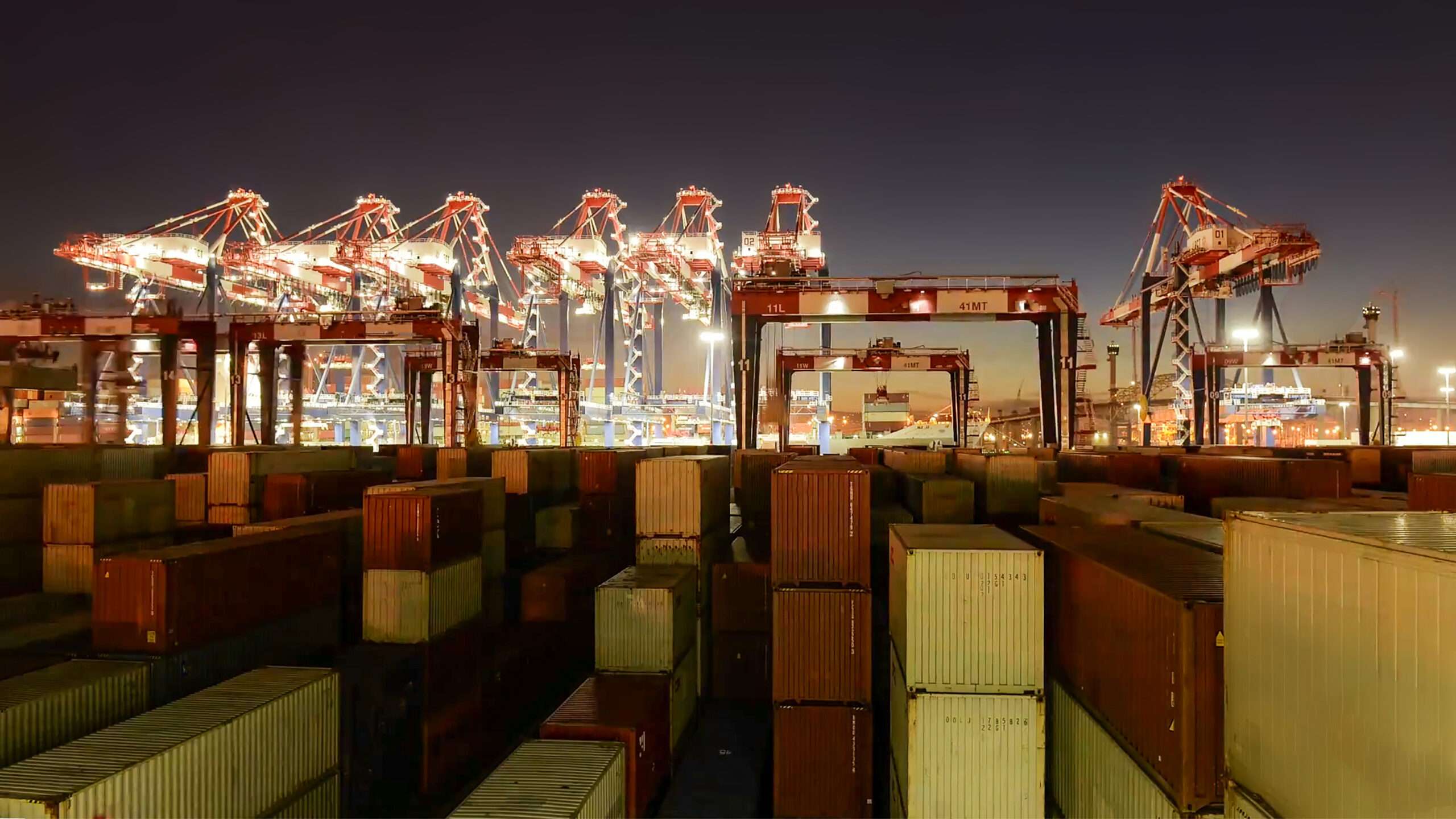The U.S. International Trade Commission (ITC) ruled 4-0 earlier this month that imports of home washing machines from South Korea, mainly by Samsung and Lucky-Goldstar, are harming American manufacturers. It is now up to Pres. Trump to accept or reject the commission’s recommendation for a retaliatory tariff. He should accept it.
[Ian Fletcher | October 19, 2017 | American Thinker]
This decision goes to the heart of a broader question: Is the Trump administration serious about enforcing trade rules and making trade work in the national interest, as he promised on the campaign trail?
Some background: Whirlpool, the leader in the U.S. washer market, has been losing ground to Samsung and Lucky-Goldstar in recent years. They, in turn, claim they are gaining market share simply due to higher quality and lower prices.
An investigation in 2013 by the U.S. government, however, exposed a more disturbing story. Samsung and LG are indeed selling washers at lower prices, but doing so through a strategy called “dumping.” That is, they are selling below production cost with the goal of eventually driving U.S. manufacturers out of business.
For understandable reasons, dumping has long been illegal under U.S. law and international trade agreements, including the Korea-U.S. Trade Agreement (KORUS). South Korea does not tolerate foreign (read “Chinese”) companies dumping in its own markets.
After the U.S. government ruled that Samsung and LG were dumping and imposed a retaliatory tariff, the firms responded by first stockpiling washers in the United States and then shifting their production to other countries — first China, then Vietnam and Thailand — in order to evade the tariff, which was country specific.
As a result, Whirlpool and other U.S. manufacturers continued to suffer from illegal dumping. Therefore, Whirlpool decided this year to file a so-called “safeguard petition” with the ITC under Section 201 of the Trade Act of 1974. A safeguard petition asks the ITC to determine whether imports are causing serious injury to an American industry. It targets imports from any country, thus preventing the country-hopping Samsung and LG have engaged in.
Safeguard provisions are a normal and necessary enforcement mechanism in a world where trade agreements have rules Both the Reagan and George W. Bush administrations used them.
Unfortunately, some people don’t understand this. Whirlpool’s critics have argued that the company is seeking a corporate bailout. Several members of Congress have written to the ITC opposing granting the tariff.
Opponents of the tariff have appealed in the name of so-called free trade. But this is a misunderstanding. For a start, given the manifold ways in which Korea keeps its own markets closed, subsidizes its industries, and has manipulated its currency, genuine free trade between the U.S. and South Korea simply does not exist. Acquiescing to the status quo would not further it.
Furthermore, even for those who are satisfied with the current charade version of free trade, in which America opens its markets in reality, but many foreign nations only do so on paper, the case highlights sensitivities that, if improperly managed, could undermine U.S. support for the global trading system as a whole.
Few issues featured as prominently in Donald Trump’s campaign as the idea that the United States is getting the raw end of trade deals. As a recent Morning Consult poll found, Trump’s view — which does not take issue with international trade per se, but questions whether existing free trade arrangements benefit the United States — is consistent with the outlook of the American people.
The reason is the American people intuitively understand what our country’s globalist political class refuses to admit: free trade does not work if it is undertaken on an unequal playing field. It does not work when one side, with the support of its national government, engages in dumping aimed at wiping out an American industry.
The Korean firms can’t deny the facts of this case. So they are now trying to muddy the waters, and buy support in Congress, with disingenuous promises about job creation. Legislators from Tennessee and South Carolina are now touting plans by these companies to build factories in their states.
In all likelihood, however, Samsung and LG will simply establish final-assembly “kit” plants, which operate largely on imported parts and that can be moved abroad when the threat of trade enforcement subsides. But this will displace the long-term plants of American companies, which use more domestically produced parts and thus create more jobs in their supply chains. (Investment in such plants is already being cut back in anticipation of imports.) It is not a winning job-creation strategy.
Failure by the Trump administration to take action against Samsung and LG would amount to an abandonment of the president’s campaign promise, and could incite a backlash not only against particular foreign manufacturers, but also against the broader international trading system. Indeed, Trump’s manufacturing and trade policy advisor Peter Navarro has cited dumping by Samsung and LG as “precisely the kind of trade cheating that must be stopped.”
The administration is already hearing grumblings from its base for failing to follow through on its campaign promises about trade. As a candidate, Trump lambasted the U.S.-Korea Free Trade Agreement as a “job-killing trade deal” and “one-way street,” but has yet to renegotiate or terminate the deal as promised.
The risk of a political backlash is particularly acute in the washer case because members of Congress are publicly going to bat for foreign companies like Samsung and LG. Household washers – your “humble washing machine” as the Wall Street Journal put it – are familiar products that voters understand. Manufactured in swing states like Ohio, with contentious Senate and House races on the horizon, the issue could easily be championed by populist candidates.
Amid growing trade imbalances, the days when the United States could just ignore the costs of illegal trade practices are over. It is incumbent on the Trump administration to send a message to our trading partners that economic partnership requires respect for agreed rules, including that dumping is illegal. It can do so by acting on the ITC’s forthcoming recommendations on trade sanctions and imposing a tariff.













